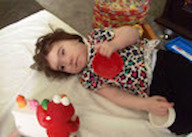Fine and Gross Motor Skills
Audiences: Families, MDT, SC, DSP
Recommended Practices: A4, E3, E4, E6, F2, INS1, INS2, INS4, INS5
This unit provides information about the impact of a dual sensory loss on fine and gross motor skills development and intervention strategies related to motor development.
Download this slide presentation to find the specific slides referred to on this page:
IN Training Part 2Microsoft PowerPoint Document|7.1 MB
Impact
PowerPoint Slides
IN Training (Part 2): Slides 12-14
These slides provide a brief description of the impact of deaf-blindness on motor skills.
Handouts
The Balancing Act
The author is a physical therapist and assistive technology specialist who explains the importance of balancing cognitive and motor tasks. A link to the SETT Framework (an assessment tool) is included.
Hold Everything! Twenty “Stay-Put” Play Spaces for Infants and Preschoolers with Sensory Impairments and Other Special Needs
This 50-page booklet provides detailed instructions for constructing each play space.
Strategies: Active Learning
PowerPoint Slides
IN Training (Part 2): Slides 16-17
These slides cover Active Learning principles and practices.
Videos
First SAL Experience
This video from Washington Sensory Disabilities Services shows a child's positive response to being in a Space for Active Learning (2:26). [Note: Click on the "Videos" tab and scroll to the last video on the page.]
Handouts
An Introduction to Dr. Lilli Nielsen's Active Learning
This brief article from 1995 lists Dr. Nielsen's recommendations for developing a child's environment.
Strategies: Hand-Under-Hand
PowerPoint Slides
IN Training (Part 2): Slides 18-19
These slides give a brief overview of hand-under-hand.
Videos
Joel Opens the Top
This video from Washington Sensory Disabilities Services shows the use of hand-under-hand with a child (1:45). [Note: Click on the "Videos" tab and scroll to the third video on the page.]
Handouts
Talking the Language of the Hands to the Hands
This 2003 article by Barbara Miles discusses the importance of hands to individuals who are deaf-blind and how to teach skills that facilitate hand development and expressiveness.
Strategies: Motivation to Move (Body and Spatial Awareness)
Videos
Christopher Uses His Walker
This video from Washington Sensory Disabilities Services shows how a provider motivates a young boy to use his walker (2:11). [Note: Click on the "Videos" tab and scroll to the second video on the page.]
Joel Crawls
This video from Washington Sensory Disabilities Services shows a father helping his toddler crawl to the window (0:53). [Note: Click on the "Videos" tab and scroll to the fourth video on the page.]
Photos

Strategies: Responsive Environments
PowerPoint Slides
IN Training (Part 2): Slide 16
This slide describes responsive environments.
Videos
Strategies: Safety and Security
PowerPoint Slides
IN Training (Part 2): Slide 15
This slide gives tips for safety, security, and predictability.
Participant Learning
Reflection:
Vision and hearing are our two distance senses. It has been said that "vision and hearing make the world an interesting place." Reflect on how a combined vision and hearing loss can have an impact on a child's desire to explore their world.
